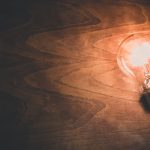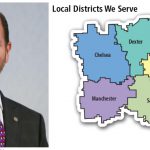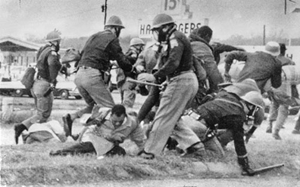Election day fast approaches for some of us. No, I am not referring to the general election in November. I mean the local primary elections taking place across the country in the next month or so. Here are nine reasons to take non-presidential primaries more seriously and some resources to make primary voting easier.
- Voting Is a Critically Important Right Still Being Denied to Some
Congress passed the Voting Rights Act in 1965 to prevent state and local governments from continuing the practices used for decades to deny citizens, particularly those of color, their right to vote. In the 2013 Shelby v. Holder decision, the Supreme Court undermined a key feature of the law that prevented jurisdictions with a history of discrimination from changing their voting rules without prior federal approval. In ruling that Congress had to create a new formula for determining which states and local governments needed to seek preclearance before changing voting laws, the Court effectively eliminated the preclearance requirement, and a wave of voter suppression laws have since gone into effect. In February 2019, U.S. Rep. Terri Sewell introduced the Voting Rights Advancement Act, designed to renew the protections of the Voting Rights Act, stating, “In my hometown of Selma and throughout Alabama’s 7th Congressional District, Americans bled, marched, and died for the right to vote, but the modern-day voter suppression we saw in the 2018 mid-term elections shows that old battles have become new again.” The bill passed the house and, like so much legislation lately, has died in Senator Mitch McConnell’s inbox.
Sewell described one of those battles for the vote and the role played by one of the inspirations for the Voting Rights Advancement Act, fellow U.S. Rep. John Lewis. “Nearly 54 years ago next week, on March 7, a courageous band of civil rights activists – including my friend and hero, Congressman John Lewis – began a march for the right to vote from Selma to Montgomery. They marched non-violently in the face of unspeakable violence. On that Bloody Sunday, they shed their blood for the ballot.”
John Lewis, who recently passed away, fought for voting rights and against voter suppression his entire career. In 2019 he called attention to Shelby v. Holder and summed up the importance of the vote, “I have said this before, and I will say it again. The vote is precious. It is almost sacred. It is the most powerful non-violent tool we have in a democracy. There are forces in this country that want to keep American citizens from having a rightful say in the future of our nation. That’s why the VRA [Voting Rights Act] was gutted. We have to change that. We must change it, and we will. Congress must change it. We have the power, and we must do all we can, on our own watch, in our own time to make sure the work of democracy continues in this country. I am deeply and very concerned about the future of our democracy. It seems like the lights are about to go out. We must have the capacity and the ability to redeem the soul of this nation and set it on the right course. We must do all we can to make this a nation where justice and the voice of the people prevails.”
Voting is critical to this democracy. People have bled and died for the right. It is currently under attack via legislation designed to suppress the vote. We need to vote to prevent or roll back these attempts to steal the vote from citizens. Use it or lose. We cannot afford to take the right to vote lightly and must exercise it in every election.
- America Needs to Improve Voter Turnout
Despite the vote’s importance, historically American citizens have not taken full advantage of it. For the last 100 years, our voter turnout for the general election in presidential election years has hovered between 50% and 65% of the eligible voters. Midterm elections fare worse with turnout rates between 35% and 50%. A cornerstone of our entire democratic ideal, and that has been the best we have managed.
We have done even worse when it comes to non-presidential primaries. For example, 63% of eligible voters in Michigan turned out for the 2016 general election and 55.4%, a record high for non-presidential years, turned out for the 2018 midterm general election. In contrast, 2016 only saw an 18% voter turnout for that year’s primaries, while 2018 saw an all-time high of 28.2%. The best primary turnout in modern state history still amounted to less than a third of the actual voting population.
Only 58.74% of California voters turned out for the general election in 2016, and 50.45% for the 2018 midterms. However, when it came to the gubernatorial primaries, only 37.5% voted in 2018, and that was a record high. Both California and Michigan elect governors in their mid-term elections, so both presidential and midterm election years merit high voter turnout in those states. Yet, that has not happened.
National databases rarely include local primary statistics, but the data reported by individual states consistently shows much lower turnouts for primaries than general elections. Michigan’s primary turnout rate has ranged between 15.1% and 28.2% since 1978, with few turnouts above 20%. During the same time period, Texan turnout ranged between 7.0% and 23.9%, again with few years seeing above 20%. Massachusetts has done better, with turnouts since 1978 between 8.8% and 50.2% along with many years above 20%. However most of those years still saw turnout below 33.3%, i.e., one-third of the eligible voting population. Voting is central to this democracy. We should do better than having less than one-third, and in many cases one-fifth, of those eligible to vote actually turn out to do it.
- Primary Races Involve Key Local Politics
Why do Americans fail to turn out for primaries? No doubt, some do not even have primary elections on their radar. They get nowhere near the publicity that general elections do, and thus people do not receive the various social reminders that a primary is coming up the way they do for the general elections.
More importantly, many just do not see the local primaries as worth it. They do not hold the prestige of a presidential primary or a general election. As American citizens have become more and more jaded about the value of their participation in the election process at all, it is no wonder that many do not attribute much significance to non-presidential primary races.
However, the policies that have the biggest effect on our daily lives do not happen at the national level. Non-presidential primary races determine who is on the ballot for statewide, county, and local races. Concerned about police brutality or enforcement of COVID-19 precautions? Who is running for county sheriff? Wishing a Confederate statue were removed? Who is running for town council? Worried about what money will be allocated to school lunches or better education resources for children-in-need? Who is running for the school board? Primary ballots contain the widest selection of choices for key local offices that determine how your life and your community will operate going forward. Afterwards the choices narrow dramatically. The path to bettering a community, keeping it safe, and improving economic and social inequities starts with the non-presidential primaries.
- Important Local Elections Are on Primary Ballots
Primary ballots do more than pick party nominees. For example, many local primaries also serve as special elections for other local matters. Local millage, bond, or ordinance proposals often appear unadvertised on the primary ballot. These proposals determine how the community allocates resources, such as school or police funding.
Other non-partisan issues may also appear on ballots, such as non-partisan judicial races. Here again, voter participation can really matter. In May, Michigan Circuit Court Judge Mary Ellen Brennan ordered a Black student into juvenile detention during the COVID-19 outbreak for breaking her probation by not completing her remote schoolwork, in what is being described as another instance of the school-to-prison pipeline. The 15-year old remains incarcerated, despite the COVID-19 pandemic which has triggered the early release of non-violent criminals elsewhere. The judge is up for re-election this year. In Michigan, judicial races are non-partisan. If she had a primary challenger, the judge could be voted out of the race at the primary level.
By not showing up for the local primaries, that means that less than a third, and often less than one-fifth, of the voting population determines the outcome of local legislation and races that can have a direct impact on everyone’s life. This is citizen participation at its most basic level. We need to make sure we are a part of it and that our voices are heard.
- Vote in the Primaries for Better Choices in November
How many times have we complained about the ballot choices in November? Well those choices arise from the results of the local primary elections. If someone would prefer to see a progessive candidate on the November ballot over a moderate one, they need to vote in the primary to make that happen.
In 1998, Geoffrey Fieger, best known at that time for being the lawyer for Dr. Kevorkian and therefore a recognizable personality, won the Democratic gubernatorial primary in Michigan. That year, 19% of eligible voters turned out for the Michigan primaries for all parties combined. In November. Democratic voters faced the choice of Republican John Engler, someone whose political ideals clearly did not match their own, or Fieger, a man with many reprehensible qualities and zero political experience. In 1998, 43.5% of those eligible voted in the general election, and Engler won in a landslide. Fieger won the Democratic nomination with 41% of the vote compared to his nearest opponent’s 37%. Had more people turned out for the local primary elections, the nomination results and, therefore, the election results could very well have been entirely different.
Looking back at the 15-year old girl currently incarcerated for not doing her homework, the county prosecutor who brought the case is also up for re-election on the partisan primary ballot. Primary voters will determine if she even makes it to the ballot in November. Help ensure better options in the general election by voting in the primaries.
- Primaries are the General Election for Some Races
Primary results sometimes determine the race before the general election has even happened. For example, given the political landscapes and demographics in some regions, a Republican or Democratic win of certain seats is practically guaranteed. Thus, primary results, not general election results, determine the winner of those races.
In 2018, 10-term incumbent and number four Democrat in the U.S. House of Representatives Joseph Crowley lost his primary race for New York’s 14th district, representing parts of the Bronx and Queens, against Alexandria Ocasio-Cortez. Ocasio-Cortez’s victory in the primary ensured her win in November. This allowed her to spend the time in between the primary and the general election boosting the bids of other progressive Democratic candidates rather than needing to focus on her own campaign.
Such outcomes are commonplace in any race where one party dominates the region. Over the last ten to twenty years, gerrymandering and greater polarization has increased the number of general election results that are foregone conclusions. In any of those races, the choices made by a small percentage of the electorate will determine who will sit in those positions in the coming year. By not voting in primaries, citizens exclude themselves from having a say in those outcomes well before the general election takes place.
- Ranked Choice Voting and “Top Two” Formats Mean Primaries Carry More Weight
With ranked choice voting, voters do just that. Instead of voting for only one candidate, they rank their choices. It means that rather than an “either/or” election result, all votes contribute to who eventually prevails. Everyone’s second choice may carry the day, even if no one had them first on their list—arguably a better compromise result than narrowly electing a sharply divisive candidate over the vehement objections of the minority party.
Not all locations have ranked choice voting. New York uses ranked choice for its primary and special elections. Other states, such as California, have several municipalities that use ranked choice for local elections. Maine utilizes the option statewide. Given the nuanced nature of this kind of voting, it is especially important to turn out for the primaries that have ranked choice voting.
Similarly, California and Washington have a “top two” or jungle primary format that uses a common ballot for all candidates in a race. The top two winners, regardless of party, end up on the November ballot. The format gives primary voters the maximum choice of candidates. With large voter turnout, the results would create a ballot based on the true representative desires of the local constituencies. However, if only a small percentage of voters turn out, the results can be skewed by extremism that does not represent the views of the majority. Both ranked choice voting and “top two” primaries work best with higher voter participation.
- It Is Easier than Ever to Be Informed about Down Ballot Races
People used to go into the voting booth and gasp at all the races and candidates of which they had never heard before. Now, many states offer sample ballots so voters can avoid surprises when it comes time to fill out the real thing. People can usually find details on their Secretary of State’s website. The Rock the Vote site allows a person to select their state and get general information about their election, and by selecting the local tab, the site can direct the person to their local election official’s webpage. The Vote 411 site also provides state information and a sample ballot, although a voter’s state election official’s website may offer a more accurate version.
Thanks to the internet, voters have more resources than ever to investigate the backgrounds and positions of candidates with which they have no familiarity. Even if folks are social distancing, they can go online to ask friends and neighbors if they have any information on particular local candidates. Some quick internet searches of the candidate’s name and general location can reveal online biographies or what the candidate may be saying on social media. A check of candidate web pages will indicate their positions and platforms. The non-partisan Vote 411 and Ballotopedia also serve as excellent starting points to learn some basics about the federal and local candidates as well as down ballot races. The more obscure races on a ballot no longer need remain a mystery come primary election day.
- It Is Better to Vote and Lose than Not to Vote at All
As John Lewis said, voting is precious, almost sacred, and the most powerful non-violent tool in a democracy. However, people sometimes feel disheartened about participating in the process when they watch their preferred candidates lose a primary. They should not use that as an excuse not to vote.
Voting is the cornerstone of having a say in our government. It is a right so important people were willing to die to get it. While people may sometimes feel let down by the process, they should keep in mind that they would have had no say in the outcome if they had not voted at all. Voting represents a chance for their voices to be heard. If people silence themselves by not voting, they do the work of those they oppose for them.
Resources for Voting in the Primaries
Feeling inspired to vote in the upcoming primaries and want to find out more about yours? Primaries differ from state to state, so make sure you are clear on the rules in your state. For example, some states have closed primaries, where only those registered with a political party can vote. Some states have open primaries, where a voter does not have to be affiliated with any party to vote, and all voters are free to vote in one party’s primary. Other states have some hybrid between these two options. Find out what kind of primary your state has online.
Make sure you know when your primary takes place, what the ballot will look like, and what your options for voting are by checking with Rock the Vote, Vote 411, Ballotpedia, or your state election official’s website. Also, make sure you are registered to vote while you are on those sites, and if not, register. Put election day on your calendar and use your smartphone’s reminder features to let you know when it is coming up. COVID-19 has caused changes in several state’s voting plans. Check to see if COVID-19 has impacted your state’s primaries.
Speaking of COVID-19, you might be able to avoid going to the polls at all and risking exposure. Twenty-eight states and the District of Columbia allow no-excuse absentee voting. Five states allow elections by mail-in-ballot. Find out if you have an option to vote by mail or absentee rather than going to the polls as soon as possible to allow yourself time to receive and return your ballot. Some states will allow you to obtain a ballot and drop it off at your local municipality’s clerk’s office if mailing times will pose problems in meeting election deadlines.
Get Out and Vote in Every Election
No candidate will ever align perfectly with our personal goals and ideals. As voters, we make the best choices we can with what we have. Participation in the process of representative government at this most basic of all levels is critical to the functioning of this democracy. Therefore, no matter what you may think of the choices or the system, vote like your life depends upon it, because the outcomes of even primary elections play a part in determining how you will live going forward.
At a recent meeting I attended, a local woman, Natalie Robinson, pointed out that after living 40 years in the United Kingdom she was astonished at how complicated and difficult voting in America sometimes is. She noted, “It’s almost as if someone doesn’t want you to vote.” To that point, John Lewis observed, “Your vote matters. If it didn’t, why would some people keep trying to take it away?”
Do not take your vote away from yourself. Use the resources in this article to overcome some of the obstacles and do your bit to prevent the lights of democracy from going out. Do not leave something that matters so much to only one-fifth of the population. John Lewis challenged us to keep exercising our precious, almost sacred right. “I was beaten, my skull was fractured, and I was arrested more than 40 times so each and every one of us can register to vote. Do your part.” Honor his legacy. Vote.
Ann Anderson is a contributing writer for Torchlight and, when time permits, for her own blog on social and political topics, Strigiforms.com. She has a familiarity with the legal profession, history, and an eclectic potpourri of informational tidbits. She can be reached at ann.anderson@torchlightmedia.net.



